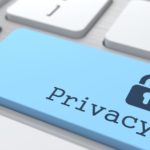 By: Cynthia McNabb and Clive Pontusson
By: Cynthia McNabb and Clive Pontusson
In Sheats v. City of East Wenatchee, the Washington Court of Appeals determined that a Police Officer could not prevent the disclosure of the pre-employment polygraph test he took when he applied for employment with the East Wenatchee Police Department. Even though a polygraph report is generally exempt from disclosure under the Washington Public Records Act (PRA), an Officer who is seeking to prevent disclosure of a public record must show that disclosure is not in the public interest, or that it will damage a critical government function. Because Officer Sheats could not prove this, the Court of Appeals decided he could not prevent the City of East Wenatchee from disclosing the results of his polygraph test.
In 2016, as part of a required pre-employment screening, Officer Tye Sheats submitted to a polygraph test. During the test, Sheats admitted to wrongdoing, including theft and dishonesty. In 2017, a criminal defense lawyer intended to call Sheats as a witness in a criminal trial. Pursuant to the requirements under Brady v. Maryland she informed defense counsel of Sheats prior dishonesty. She informed a prosecutor in neighboring Douglas County of this as well. The Douglas County prosecutor then asked her for the result of Sheats’ polygraph test. It was shared with other prosecutors and defense attorneys. The Wenatchee World then asked for a copy of the polygraph test. Sheats then filed a lawsuit claiming that he had a privacy right to the polygraph test that prevented its disclosure to the public.
The Washington PRA is strongly favors the disclosure of government documents and records to the public. Nevertheless, Sheats claimed that polygraph test results were “materials submitted with respect to a [job] applicant,” and therefore they were specifically exempt for disclosure under the law. Sheats acknowledged that the polygraph would have to be disclosed to criminal defendants under Brady, but objected to any other public disclosure. He asked for an order from the court restraining the City of Wenatchee from disclosing the test. Sheats claimed that disclosure would not be in the public interest and would damage him personally.
The City of Wenatchee relied on the strong presumption of disclosure of in the PRA. The City also argued that the public had a strong interest in knowing whether a police officer was a law abiding person. The City argued that this concern overrode any privacy interest Officer Sheats may have had in keeping the polygraph results confidential.
The Court of Appeals agreed with the City of Wenatchee and determined that Officer Sheats could not prevent disclosure of the polygraph. The Court began by agreeing with Sheats, at least in part:
We hold that polygraph reports taken by peace officers as part of a pre-employment screening qualify as “other related materials submitted with respect to an applicant,” so that such reports are exempt under [the PRA.]
However, the fact that something is “exempt” under the PRA does not mean it cannot be disclosed. When it came to criminal trials, the Court stated:
Even if Officer Sheats’s polygraph report is exempt from dissemination under the PRA, the respondent cities and counties are required to disclose it to defense counsel in cases where the polygraph report would qualify as exculpatory evidence or impeachment evidence favorable to the criminal defendant.
Finally, the Court determined that since Officer Sheats was attempting to prevent disclosure, he bore the additional burden of showing good reason not to disclose the record:
The public has an interest in knowing if a current peace officer is a law abiding person. Officer Sheats is unable to establish that dissemination of his redacted polygraph report would clearly not be in the public’s interest.
This case offers an interesting discussion of competing interests. The Washington State Public Records Act is expansive in its efforts to release information to the public. With that said, there are exceptions that are typically upheld by Courts relating to documents that are exempt from public disclosure, including application materials and information that is gathered for the purpose of applying for positions within law enforcement and government agencies. Had the employee had a clean polygraph, the likelihood of it being released for Public Disclosure would be minimal. However, because there were Brady issues involved and the City opted to release the polygraph under its Brady obligation, the results of the polygraph because more meaningful from a public interest standpoint. Another case dealing with polygraph results, with different facts, may result in a completely different application of the public disclosure law pertaining to the exemption for release of application materials.
**Visit our Premium Website for more information on Right to Privacy in Personnel Files **



